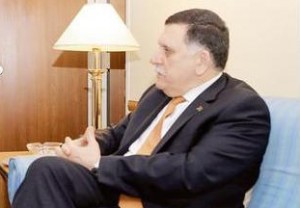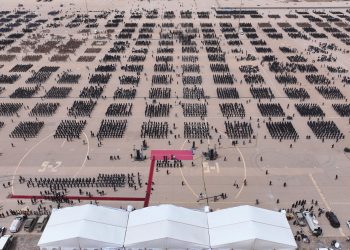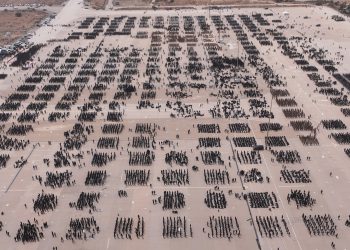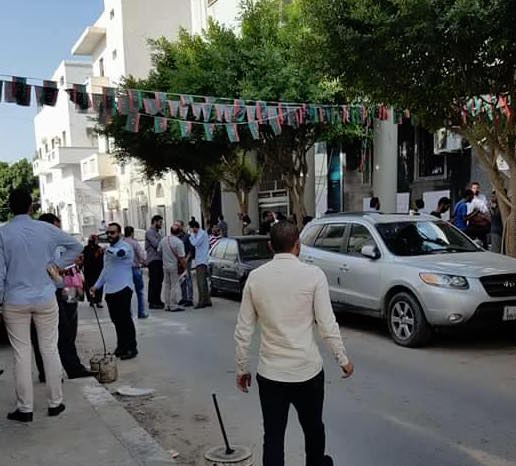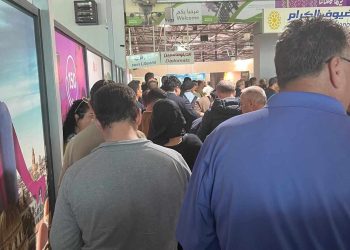By Sami Zaptia.
London, 2 November 2016:
In a frank and open interview on the margins of the meetings organized by the British Foreign Office in London this week, Presidency Council head and nominated Prime Minister of the Government of National Accord (PC/GNA) Faiez Serraj spoke to Libya Herald.
Serraj explained why the PC/GNA had failed to achieve progress on the ground and spoke about militias, the Presidential Guard, building an army, Hafter, Ageela Saleh, the House of Representatives, the Tripoli Central Bank of Libya and its Governor Saddik Elkaber, the Chairman of the National Oil Corporation Mustafa Sanalla and the Tripoli coup attempt by Khalifa Ghwell.
Security arrangements and the Presidential Guard
Serraj looked relaxed and calm as he tackled my opening salvo about militias and security arrangements. He admitted that the security arrangements as laid out in the Libyan Political Agreement, signed by the contending Libyan parties in December 2015 in Morocco, had started slow and that the whole timeline set out in the LPA has now been bypassed by reality on the ground. The security arrangements of the LPA had included the vacating of all urban centres of any militias.
However, Serraj continued ‘‘despite all our good intentions and plans…we need resources. We thought that the Presidential Guard would be deployed and armed quickly. At least there could be a clear body present, untainted by the past or by Libya Dawn or Dignity. Unfortunately, there has been a delay, even by the international community’’.
Priorities: Libya versus international community
The international community’s ‘‘priorities seem to be fighting terrorism and illegal migration’’, admitted Serraj. ‘‘Every time we sit together with representatives of the international community this seems to be the main topic on the table asking what we have done in these two issues’’.
‘‘I keep telling them that there are other issues that concern Libyan citizens more than these. The Libyan citizen sees how the international community is concentrating on its priorities and not concerned that the Libyan citizen queues for three days to get LD 100 from the bank. And how you are not concerned that the electricity is cut for up to 14 hours’’.
‘‘You are not concerned that hospitals have no vaccinations. You are not concerned that there are schools in which people are living rather than being used for schooling. These all represent the priorities of Libyan citizens. This is the problem: is the international community supporting us with statements or are they supporting us in improving services and the standard of living for the Libyan citizen. If this does not happen effectively, which I repeated today in my meetings, there will be no progress’’.
‘‘The support that the international community is giving Libya is minor relative to the exceptional phase that Libya is going through – even the humanitarian support is relatively minor’’.
Militias, militias, militias
‘‘The PC/GNA has been sidetracked into side battles. We have ended up firefighting. Other fronts have been opened and we ended up fighting on those fronts’’.
‘‘We wanted to demobilize and reintegrate the militias. All these good intentions existed. But our visions and plans need resources, money and capabilities’’, he explained. ”It is possible to categorize militias. There are some militias who have regular military numbers and are part of state institutions, the Chiefs of Staff, the Ministry of Defence, the Ministry of Interior etc. These are positive or benign militias who are prepared to cooperate’’.
‘‘Then there are armed criminal groups. These, we have no other way but to fight them. Then there are (politically) recruited militias which again you cannot deal with. There are militias that you need to deal with politically. You need to attract them and win them over. Many militias when we entered Tripoli they themselves said that they were exhausted and said they wanted state institutions to integrate them into the state. But integration needs money otherwise how are we going to integrate them into the state?’’
‘‘We would need to rehabilitate them in the army or police or Presidential Guard or Municipal Guard or Petroleum Facilities Guards or whatever. We cannot take someone from a militia who simply has excellent fighting capabilities and equate him with a professionally trained soldier’’.
‘‘We need to rehabilitate and retrain them through activating military colleges and technical colleges so that we can integrate these militias so that we at least give them some military know-how and regiment them etc. that way we can benefit from them. But now militias are uncontrolled’’.
‘‘They do as they please as we have sadly seen in Zawia in the last three days and as we saw the militia clashes between Ghainawa or Haitham Tajuri or whoever. Whenever they want to go out and fight, they don’t ask us and we end up firefighting these battles’’.
‘’Many militias have indicated they want to go back to civilian life but said that they have been forced to carry weapons. They want to go back to their education. We want them to go back to their studies. Some have left their work. We want them to go back to their work and we want to help them in their SME projects’’.
‘‘If there was stability, we can think about all this. But the problem is that the GNA has not enjoyed any period of stability’’.
The HoR and Hafter
‘‘We ended up in political battles with the HoR – a story that has not wanted to end and all the related politicking. We also ended up in a tug-of-war with Mr Khalifa Hafter’’.
‘‘We met with him and talked with him. Come and let’s sit down and talk’’, Serraj gestured. ‘‘We assured him that we did not want to marginalize him. But we insisted that he operated under a political umbrella I went to him in Marj and spoke to him clearly. What is the problem, I told him? You want state military institutions. So do we’’.
‘‘I told him that there is already an army in the western region over and beyond the small number that he has in the east. The army that exists in the west is double many times over the size of that in the east. The army and the Libyan military institution is 70 years old. The army was not created today or yesterday by Hafter. Yes, the Libyan army went through a difficult period under Qaddafi – but the army exists and has existed’’.
‘‘We told Hafter we want to create and activate some state military institutions on sound foundations and we invited him to join us. We told him this was his chance to join us through the GNA as the weapons embargo is going to be lifted for the national army and we can fight terrorism together’’.
‘‘I expected a positive response from him but I am sorry to say for his own personal reasons and his lack of confidence in some members of the PC/GNA in that they are politically controlled and Islamists etc, he refused to be controlled or under their command’’.
‘‘We tried with him on more than one occasion. We told him that not all the PC was as he had described it. That it contained civilian political streams as well as nationalists and that he should cooperate with us and that we would continue his army-building programmes in the east. We invited him to join us in our battle against terrorism in Sirte. We sent him these messages clearly but sadly there was no positive response. There was inflexibility and there is still inflexibility and a different vision to the vision I drew’’.
No money
‘‘The is the position that the PC found itself in and was put into. We had no money and after great local and international efforts we got some emergency finance but even these we have been held to account for them using a sensitive scale as to how or where we spend them. We are very limited as to how we spend it, how are you going to build a state like this? No army, no weapons, no money, no’’, he pauses mid-sentence with a look of exasperation on his face.
‘‘Even the international community when they talk about rearming and creating a Libyan National Army, the steps to lift the arms embargo are so long and bureaucratic without an end or a beginning, you have to fill-in a form and assure of the end-user. It a long story and then it has to go the UN Security Council. I told them this is how you are dealing with us a legitimate government who you recognize!?’
‘‘On the other hand, the other parties, they pick up the phone, they order 200 vehicles, 300 RPGs. A third party pays the invoice and a fourth party ships them the goods. As simple as that. This is what is happening. How do you expect me to play my positive part and do this and that etc and you have not provided me with support – support that the other party has in a blank cheque?
I pointed out that the position of a legitimate authority internationally recognized is different to that of the other parties.
Khalifa Ghwell of the Salvation Government and his attempted coup
‘‘Worse many times over’’, interceded Serraj. ‘‘Khalifa Ghwell (of the Salvation Government that attempted a coup in Tripoli in October) the money that he is currently pumping in order to cause instability in Tripoli and what he did with the Presidential Guards and what he attempted to do with the militias that were protecting Sikka Road and what he attempted to do with the militias that were protecting the Ministry of Defence’’.
‘‘This is all done with money. This means there is money being pumped in. I am talking about LD 100 to LD 150 million. These are large numbers. This is political money being pumped into the streets to create instability. I don’t have these amounts of money as a GNA. We are struggling to raise our general spending money for the PC. Then the CBL turns around and says we have no resources for your overheads. Yet the CBL is able to spend elsewhere without even our permission.
The CBL
It will be recalled that Italian Foreign Minister Paolo Gentiloni had said on Monday that he saw “a glimmer of hope in finding a compromise to break the stalemate between the Libyan government and the Central Bank of Libya and put the necessary resources in the hands of the head of the government Faiez Serraj as he tries to consolidate economic and political stability”.
Serraj had launched a fierce attack on Elkaber last week accusing Elkaber of failing to fix the liquidity shortage and not protecting the value of the dinar. Elkaber, in response, hit back saying Serraj had had no economic policy and was ruining the economy.
‘‘The bad relations with the CBL was one of our problems’’, explained Serraj. Initially we were friends because it was all talk. When we were still in Tunis I had asked the CBL to prepare LD 2.75 million to cover our expenses for transport, accommodation etc. even that was delayed. So the indicators from the beginning. What is said in public (by the CBL) is opposite to what happens in reality. Things accumulated after that and we entered into other problems. After great efforts the Emergency Financial arrangements were put into place’’.
‘‘When I ask the Minister of Interior to secure the coastal road for example, he says ok, but provide me with resources. He needs vehicles, he needs meals for those manning checkpoints. Even the benign and cooperative militias they need resources. They tell us that other parties are making them alternative offers. This is the acute position that the PC/GNA were put in. This has disturbed us politically, financially and militarily.
Oil crescent, the PFG and NOC Chairman Sanalla
‘‘Regarding the escalation in the oil crescent. The Petroleum Facilities Guards (PFG) was in support of the PC/GNA. We could have put up resistance to the entry of Hafter’s forces. But we were positive to the greatest degree. We wanted to avoid a fight and bloodshed in the region and avoided a civil war in the region. We wanted the increased import of oil for the benefit of all Libyans. Regardless of those (non-Libyans) used to fight in that battle according to people from the region’’.
‘’We had reached an agreement by the way with the PFG prior to the entry of Hafter’s troops. I had asked the NOC to lift the force majeure so that production and exports could resume. But NOC Chairman Sanalla kept delaying until Hafter’s forces entered. And they took the credit. But this is the truth. Sanalla, when I told him that he was delaying by purpose he claimed that he had received threats to strike oil tankers’’.
‘‘Despite all these impediments I have hope that we will bypass all these bottle necks and that we will build a military institution that does not marginalize anyone. I repeat again. Hafter and anyone else other than Hafter. An army is not built around a personality. An army is built around leadership and its command”.
”There are many officers in existence in the east, west and south of the country. Their heart is in the nation. The leadership and commanders that I have met recently in Tripoli are no less patriotic than anyone else. But all they ask is that their honour is returned. There was a calculated plan to distance them”.
”They were kicked out of their barracks. They don’t even have their uniforms to wear. They are getting paid only LD 500/month whilst other militias are being paid LD 3,000/month. How do you expect them to support the PC/GNA. These need to be returned honourably so that they can play their part’’.
We don’t have a magic stick (wand)
‘‘In practice if our problems with the CBL and the HoR are not resolved, we will remain in the same place. We don’t have a magic stick. What has the CBL done in monetary policy? They claim that the monetary position would improve if security improves. There is a series of steps the CBL can take. We told him to revalue the Libyan Dinar and the printing of money and the opening of Letters of Credit and cash transfers and the raising of upper limits for foreign currency debit cards. It is not an issue of printing money that is inflationary. But I am sorry to say the CBL did not implement what we required. To do nothing is not an option. We have to take action’’.
‘‘The devaluation of the Libyan dinar is not optional. The CBL has no choice but to implement it. It will solve three problems. Firstly, it will cover the budget deficit. Secondly, it will bring cash into the banks. I am sure in a week or so three billion dinars would be attracted into the banks by selling hard currency at a higher rate. I believe that the excuse of security being the cause of the monetary situation will be exposed as a scarecrow’’.
‘‘The CBL has refused to implement these policies insisting on a series of other measures including fuel subsidy reform. We should implement that too, but that needs a plan and process. You cannot remove subsidies for the Libyan citizen suffering greatly as it is at the moment”.
”We have to compensate removing fuel subsidies. Subsidy reform needs political will for its implementation. The PC told the CBL in April that it would accept political responsibility for subsidy reform. We were prepared to go into the political incinerator. The CBL must accept its responsibilities”.
”It is not pursuing its monetary policies but it is entering into financial and economic policies which are not within its remit or its role. The CBL should be a custodian of money but it should not attempt to rule Libya through its administration of the CBL’’.
‘‘Therefore, if the problem between the PC and the CBL is not resolved and if there isn’t a complementary relationship between the two, and between the PC and Audit Bureau and the economic and financial issues and bottlenecks are not resolved and finances are made available to the PC/GNA and all the Ministries are activated – we have no magic solutions. We cannot make promises to people we cannot implement. The public need us to deliver’’.
Solving the HoR bottleneck?
‘‘Solving the HoR bottleneck is not my problem or the problem of the PC. That is the responsibility of the Members of HoR. The HoR objected to the initial proposed GNA saying it was too large – without seeing the names in it. They asked for a smaller GNA. We proposed one’’.
‘‘The HoR did not reply for six months. Now the HoR does not even want us to propose a third GNA. Mr Ageela Saleh has taken a prior decision to reject any proposed GNA. How can you work with this as a legislative partner?’’
‘‘I will not propose a new GNA for HoR approval prior to the HoR passing a constitutional amendment. If the HoR does not pass a constitutional amendment it abrogates its responsibilities in the LPA. Then the Libyan public can hold the HoR to its responsibilities. I am sorry to say the HoR has been hijacked by Ageela Saleh and his two deputies and a minority. Just as the Libyan public criticizes me and the PC for failing to provide anything to the people – they should criticize the HoR for destroying the country’’.
Asked how Libya can get through this impasse and what initiatives he could come up with to save Libya and the poor Libyan public from a possible impending disaster Serraj said that the east’s objection is based on one issue.
It is all about the Commander-in-Chief and article 8 of the LPA
‘‘It is all about the Commander-in-Chief (CIC). That is the issue. Hafter objects to the PC having the powers of CIC . But the LPA does not stipulate that. It is not within my powers to amend the LPA. I told them to revert to the Dialogue Committee and agree with them if they agree to amend the LPA. My role is the implementation of the LPA. It is not my role to amend it. Nor is my role the management of a war. If Libyans still wish to continue fighting, then Faiez Serraj is not the appropriate choice for this role’’.
‘‘If Libyans want to amend the LPA then when they present me with the latest version I will implement it. If they wish to completely cancel article 8 of the LPA (regarding CIC) or give the powers to the HoR or remove the Ministry of Defence or form a Defence Council representing the different sides’’.
‘‘My role is implementation whatever is decided by others. I have played a very flexible role. I was not inflexible. On the contrary I said you agree and I will implement’’.
Serraj agreed the situation in Libya has got ‘‘worse since 30 March’’ and raised the possibility that he might resign. ‘‘But you cannot blame me or hold me responsible without giving me the implementation tools to work with. What are the steps taken against the spoilers?’’
There are four spoilers at the present time
‘‘There are four spoilers at the present time. Mr Hafter is a spoiler engaging in military escalation. Mr Ageela with his political maneuverings and his blockages. Mr Saddik Elkaber and his blocking of financial and economic issues. And Sheikh Saddiq Ghariani with his religious fatwas. I am working with four types of spoilers. And I have no executive tools to implement. Whilst they have their implementation tools. Some have money, others have an army, others have media and another has religious authority etc etc..’’
‘‘We noted from our entry into Tripoli that the public’s expectations were high. I feel the pain of Libyans and failure to meet their expectations. But without financial resources we cannot implement’’.


